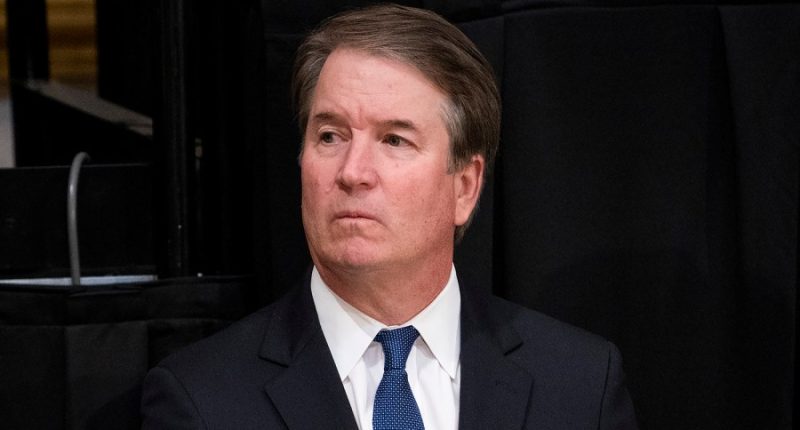Share this @internewscast.com

The Supreme Court on Monday declined to take up a case that involves whether possessing AR-15s is protected by the Second Amendment, but the court’s conservatives are signaling they soon will.
Only three justices Clarence Thomas, Samuel Alito and Neil Gorsuch voted to hear a challenge to Maryland’s ban on possessing AR-15s, barely falling short of the four votes required to take up a case.
But Justice Brett Kavanaugh sent a strong signal that he will provide that crucial fourth vote in a future case once the issue percolates more in the lower courts.
“In my view, this Court should and presumably will address the AR–15 issue soon, in the next Term or two,” Kavanaugh wrote in a three-page written statement.
Kavanaugh, President Trump’s second appointee to the court, called Maryland’s law “questionable.” But he stressed the issue is currently being considered by several appeals courts that are weighing other states’ bans.
“Opinions from other Courts of Appeals should assist this Court’s ultimate decisionmaking on the AR–15 issue,” Kavanaugh wrote.
The constitutionality of such laws has become a flash point in the legal battles over gun control. The Supreme Court has issued multiple expansions of Second Amendment rights in recent years but has yet to settle how those rulings apply to AR-15 bans.
Maryland is one of nine states that have banned the possession of AR-15s, the most popular civilian rifle in America. Maryland enacted its law in 2013 following the Sandy Hook Elementary School mass shooting the year prior.
The 4th U.S. Circuit Court of Appeals upheld Maryland’s law by ruling AR-15s are not “constitutionally protected arms” under the Second Amendment. The Supreme Court’s refusal to hear the case leaves intact that ruling.
The trio of other conservative justices said they would’ve taken up the issue now.
“I would not wait to decide whether the government can ban the most popular rifle in America. That question is of critical importance to tens of millions of law-abiding AR–15 owners throughout the country. We have avoided deciding it for a full decade,” Thomas wrote in a solo, written dissent.
He added, “I doubt we would sit idly by if lower courts were to so subvert our precedents involving any other constitutional right.”
Alito and Gorsuch did not join Thomas’s written dissent and did not author their own to explain their reasoning.
The court’s refusal to hear the case came as it also turned away a challenge to Rhode Island’s ban on high-capacity magazines. Thomas, Alito and Gorsuch indicated they also would’ve taken up that case.
In that dispute, four gun owners and a local hunting store accused lower courts of contorting the Supreme Court’s recent expansions on Second Amendment rights to uphold Rhode Island’s restrictions.











